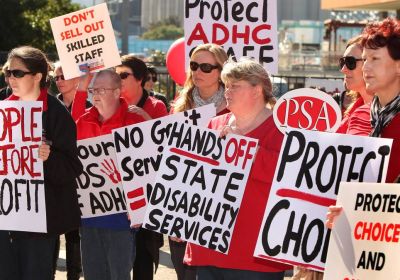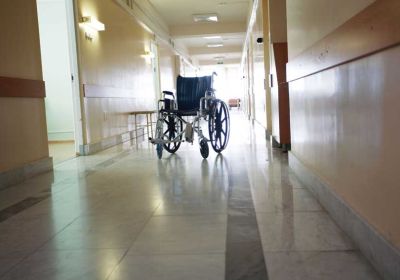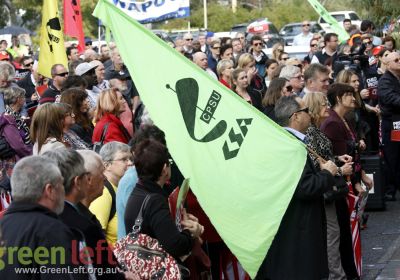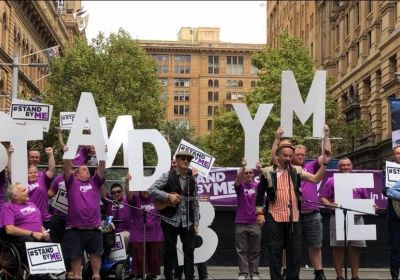
Disability rights activists rallied in Sydney on February 24. Advocates protested the NSW government’s refusal to properly fund disability services.

Disability rights activists rallied in Sydney on February 24. Advocates protested the NSW government’s refusal to properly fund disability services.
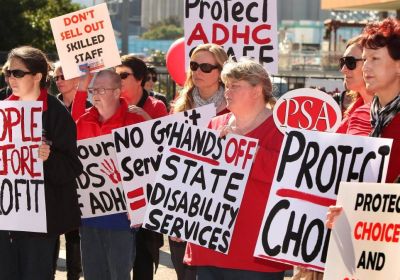
I am employed as a disability support worker by a council and, since the introduction of the National Disability Insurance Scheme (NDIS), I will soon lose my job. This is my story.
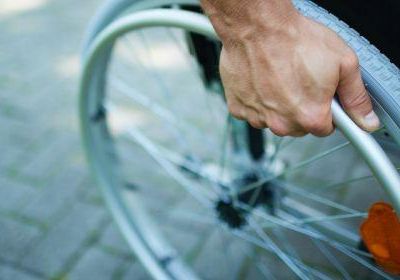
Minister for Families and Social Services Paul Fletcher announced on September 26 that the National Disability Insurance Scheme (NDIS) had reached the milestone of registering its 200,000th participant. That same day, the Sydney Morning Herald reported that the final figures for the 2017-18 federal budget showed the budget deficit had been reduced to $10.1 billion, with "the single biggest saving [being] the lower than expected numbers of participants entering the NDIS.”

Ecuador’s ruling party, the leftist Pais Alliance of President Rafael Correa, has elected disability rights activist Lenin Moreno to be its next candidate for president during its October 1 congress, TeleSUR English said. Presidential elections are scheduled for February 19 next year.
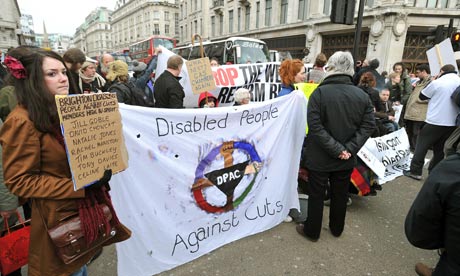 Photo: dpac.uk.net.
Campaigners warned on August 27 that reports that 2380 people died within months of being branded “fit for work” under the British government's new welfare laws grossly underestimate the true impact of invasive government assessments into the lives of severely ill and disabled people.
Photo: dpac.uk.net.
Campaigners warned on August 27 that reports that 2380 people died within months of being branded “fit for work” under the British government's new welfare laws grossly underestimate the true impact of invasive government assessments into the lives of severely ill and disabled people.
